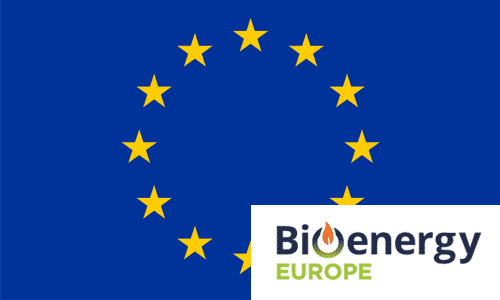Update on CEO Letter
Bioenergy Europe sent an open letter to President Von der Leyen, Vice-President Timmermans and other high-level EU representatives, urging them to properly include bioenergy in the REPowerEU Communication. The letter has been signed by more than 518 CEOs and high-level representatives from the bioenergy value-chain. The strategy is expected to be published on 18 May and according to a leaked draft version bioenergy is now included. However, no specific target was mentioned. For more information, please contact Irene di Padua.
Deforestation Amendments
The tabled amendments to the draft report of the Deforestation and Forest Degradation Regulation have been released. There were 1055 amendments tabled which can be found with the following links: amendments 99 – 234, amendments 235 – 554, amendments 555 – 877, amendments 878 – 898, amendments 899 – 1055. For more information, please contact Daniel Reinemann.
SGS supports Bioenergy Europe Statistical Reports 2022
SGS is one of the leading testing, inspection and certification companies, enabling organizations to ensure sustainable operations and compliance throughout the life cycle, while enhancing productivity, quality and consumer trust. For them, monitoring the evolving bioenergy market is essential to invest in the right areas and best support their customers build a sustainable industry, fit for the future: we thank SGS for supporting our Statistical Reports 2022!
Should you be interested in supporting our Statistical Reports, please contact Corinna Sala.
AGRI Committee Meeting
The Agriculture and Rural Development Committee met on 20 April to vote on the REDIII opinion and to discuss the New EU Forest Strategy (see full agenda). Much of the discussion focused on the multifunctionality of forests and the subsidiarity principle (video broadcast). A committee vote is expected on 12 July and the Council has already released its Conclusions on the New EU Forest Strategy back in November. For more information, please contact Daniel Reinemann.
WG Sustainability Meeting
The Working Group Sustainability met on 13 April and updates on the REDII implementation status on national level, the current developments on REDIII as well as an overview of the next steps of the EU Taxonomy on sustainable finance were presented and discussed. Further, the latest information from the Task Forces National Advocacy and Carbon Dioxide Removals was presented. The slides and minutes are now available. For more information, please contact Daniel Reinemann.
EU Forests Framework Call for Evidence
The feedback period for the new EU Framework for Forest Monitoring and Strategic Plans is open until 6 May and members are welcomed to submit feedback. The aim of the initiative is to develop a EU-wide forest observation framework to provide information on the condition and management of forests to protect them from natural disturbances and illegal logging. For more information, please contact Daniel Reinemann.
Joint Statements to European Parliament
Bioenergy Europe recently sent a joint statement on the ENVI draft opinion calling for a revision that supports sustainable forest management and respects the subsidiarity principle, while avoiding market distortions, and unnecessary administrative and financial burdens, especially to small-scale actors to key MEPs in the ENVI committee together with the forest and forest-based sectors (Cepi, Copa-Cogeca, ELO, EOS, EUSTAFOR). A second joint statement on the ITRE draft report calling for a revision that supports a stable regulatory environment without retroactive measures and avoids burdensome administrative requirements that would fail to deliver on sustainability was sent to key MEPs in the ITRE committee together with bioenergy end-users: Cepi, Cogen Europe, EOS, and EHP. For more information, please contact Daniel Reinemann.
Deforestation Draft Report Released
The ENVI draft report on the regulation on certain commodities and products associated with deforestation and forest degradation was released. The new proposal would replace the EU Timber Regulation and the Forest Law Enforcement, Governance and Trade (FLEGT) Regulation.
EED Recast Amendments to Draft Report
The ITRE committee published its amendments (142-314, 315-595, 596-885, 886-1190) to the EED draft report of MEP Niels Fuglsang (S&D, DK). The current proposal seems to be aligned with Bioenergy Europe’s position and the deadline for the consideration of the amendments is 20 April. The final adoption of the recast is planned by mid-June.
